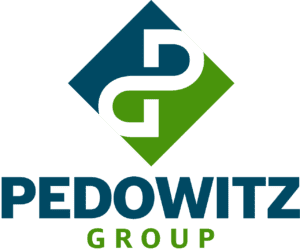A CMO embarking on the digital transformation of their marketing department recently asked me to prioritize what skills they needed for their fast-growing company. The question reminded me of the time I asked my friend Dan Wolff, some 35 years ago, where exactly on a mogul (front, back, sides or top) I should be skiing in order to master the skill of mogul skiing. His answer was simple. “You are asking the wrong question.”
There are hundreds of skills a marketing department could need, from copy-writing for blogs, video editing, podcasting, data analysis, budget management and public relations all the way to campaign design. The answer would not have been apposite. The real question is, “What marketing capabilities do we need to acquire in order to do digital marketing effectively?”
“A capability is a unique bundling of skills, knowledge, and resources that facilitate the execution of business processes, and are what ultimately contribute to sustainable competitive advantage and superior performance.” (Day, 1994, link downloads the pdf). By considering capabilities instead of unique skills we can think about the problem in terms of 10 or 20 capabilities we must acquire instead of 200 skills. For CMOs this is the best approach for building the organization.
The Technology Capabilities You Need for Digital Transformation
For the sake of brevity let’s narrow the list of capabilities down to those related to technology, and ignore strategy, reporting and analytics, customer, content, people and process related capabilities. We will tackle more of the capabilities for building an effective marketing organization in future posts. Here are five core technology capabilities marketing will benefit from acquiring:
- Technology awareness is a marketing capability that identifies current and emerging technology that will help marketing achieve its objectives. It involves defining clear organizational needs, matching potential technology, educating team members as to potential benefits and formalizing a role to own this process.
- Revenue Marketing Architecture is the capability that defines the collection of software components that are combined into a service-oriented reference architecture that support marketing in achieving its objectives. It includes the proper integration and optimization of the components, enterprise process and workflow, and overall system governance.
- Planning, Selection and Implementation is the capability that defines the process for planning, selecting and implementing a Revenue Marketing Architecture. It includes conducting a proper evaluation and needs analysis, developing use cases and measuring performance.
- Vendor Management is the capability that maximizes vendor relationships and enables organizations to control costs, optimize technology, increase performance, drive service excellence and mitigate risks.
- Technology Adoption is the capability that ensures the adoption or acceptance of a Revenue Marketing Architecture that drives business results. It includes communication, strategic planning, senior leadership commitment, project management, training and education and business process re-engineering.
Some might debate if these particular capabilities should live in marketing operations or in IT. There is no simple answer to this. For large organizations, where IT is focused on large initiatives, security, governance, data architecture at a corporate level, then it behooves marketing and sales to acquire their own technology capabilities. Keeping it close to marketing will enable the team to fully understand the business requirements and move with the agility that marketing requires. It does not obviate the need to work with IT on the integrations into other corporate systems and in adherence to defined standards for data, security, vendor selection, licensing terms etc.
Delivering on each of these capabilities requires certain skills, knowledge and experience. It may require multiple people just to deliver on a single capability and in other cases a single individual may bring two or more capabilities. The key is to focus on capability acquisition, and not simply hire people because they have desired skills. Contemplating digital transformation at the capability level also facilitates discussions around what to in-source versus what to out-source.
5 Steps to Acquire the Technical Capabilities
Steps to digital transformation by technology capability acquisition:
- Examine what you want to accomplish in becoming more proficient at digital marketing.
- Document the capabilities that this will take in technology, content creation, demand generation and reporting at a minimum.
- Consider if you can educate existing staff to help them provide these capabilities.
- If time or focus is of the essence, determine which capabilities can be outsourced temporarily or even permanently.
- Write the job descriptions and goals for the individuals in terms of the outcomes that will be delivered once the capability is in place. Look for people who have delivered these capabilities and outcomes before.
On a final note, I did learn to mogul ski. Dan’s advice that day stuck with me. He shared that the secret was to be able to ski anywhere and everywhere on a mogul. That skill enabled you to make each turn when it was due, regardless of where you were on a mogul. And isn’t that what agile marketing is all about, making rapid turns when they are due, because you have an effective capability to execute regardless of the environment?
You may also be interested in: our digital transformation consulting services or lead management process key steps.
As previously published in targetmarketingmag.com on July 19, 2018
